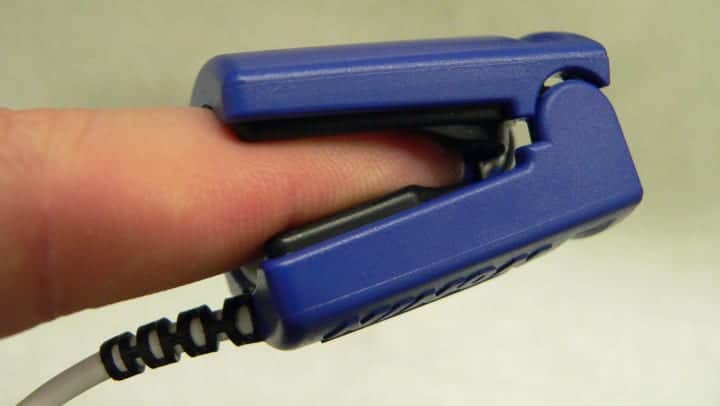Caring for your parents and determining what they may or may not need can be a challenge. In general, a recent study recommends highly specific care models and support for the elderly, especially if they are living with chronic conditions. That’s because, at this point in your parents’ life, their needs differ significantly as opposed to when they were younger. In fact, anyone who is taking a degree in social work or already works in the sector, they soon find out how the elderly comprise a large segment of the population — along with young children, victims of trauma, and the marginalized — that need the most care, as they are living through some challenging circumstances. This is even more important now than ever when oxygen-depleting diseases are getting more and more fatal. So, does that mean you should get your parents a pulse oximeter?
The answer is yes. A pulse oximeter is a device that measures oxygen levels in your blood peripherally (externally) via a finger, toe, or ear. As blood carries oxygen around the body and delivers it to various tissues, a pulse oximeter can be used to determine how well the body’s tissues are supplied with blood, and ultimately, oxygen. In other words, it can provide accurate readings that are crucial to monitoring your parents’ well-being. It can even save their lives.
Pulse Oximeters and Hypoxia
Dr. Richard Levitan told The New York Times that a pulse oximeter can detect silent hypoxia, a hard-to-detect form of oxygen deprivation. Normally, oxygen deprivation occurs as a symptom of illnesses that attack the lungs, like pneumonia. More often than not, low levels of oxygen in such diseases result in extreme duress, breathing difficulties, and shortness of breath fairly quickly, which then helps in detecting diseases early on, and the eventual treatment.
Pulse Oximeters and Pneumonia
Nowadays, however, there is a grave type of pneumonia to watch out for — the one caused by a new strain of virus from the Coronaviridae family of viruses. In such cases, the associated pneumonia attacks the air sacs in the lungs, causing them to collapse and the oxygen levels of the body to fall precipitously (as is common in normal cases of pneumonia).
The difference in this case is that despite the attack on the lungs, they remain “compliant” initially, which means they neither turn stiff nor are drowned by fluid. As a result, patients are still able to expel carbon dioxide and do not feel any shortness of breath. But pneumonia is present, and attacking the lungs continuously, until such time that not enough oxygen can pass through your lungs.
This results in the oxygen levels plummeting dangerously low — so low that patients will require a ventilator and extensive medical care. By this time, it might be too late, as getting the lungs back in good enough shape is a long, arduous, and often costly process.
Pulse Oximeters and Decreased Oxygen
However, pneumonia isn’t the only disease associated with a reduction in oxygen levels. Decreased oxygen is also a symptom associated with a range of conditions. These conditions include asthma, chronic obstructive pulmonary disease, anemia, pulmonary edema (fluid build-up in the lungs), and pulmonary fibrosis (scarring of the lungs). With the ability to monitor their oxygen levels on their own and every day, your parents can detect — and then alert you — in case their oxygen levels are plummeting. This, in turn, can be the difference between detecting a potentially fatal disease early and treating it right away or detecting it a little too late, when treatment might already prove futile.
Your parents are getting older, and their needs are ever-changing. But as we discussed in our post on the myths to assisted living, old age doesn’t need to stop them from doing the things they love, whether it’s exercising, cooking, or another hobby they enjoy. For that to happen, they’ll need your unconditional support, and little things like buying them a pulse oximeter will certainly help.




